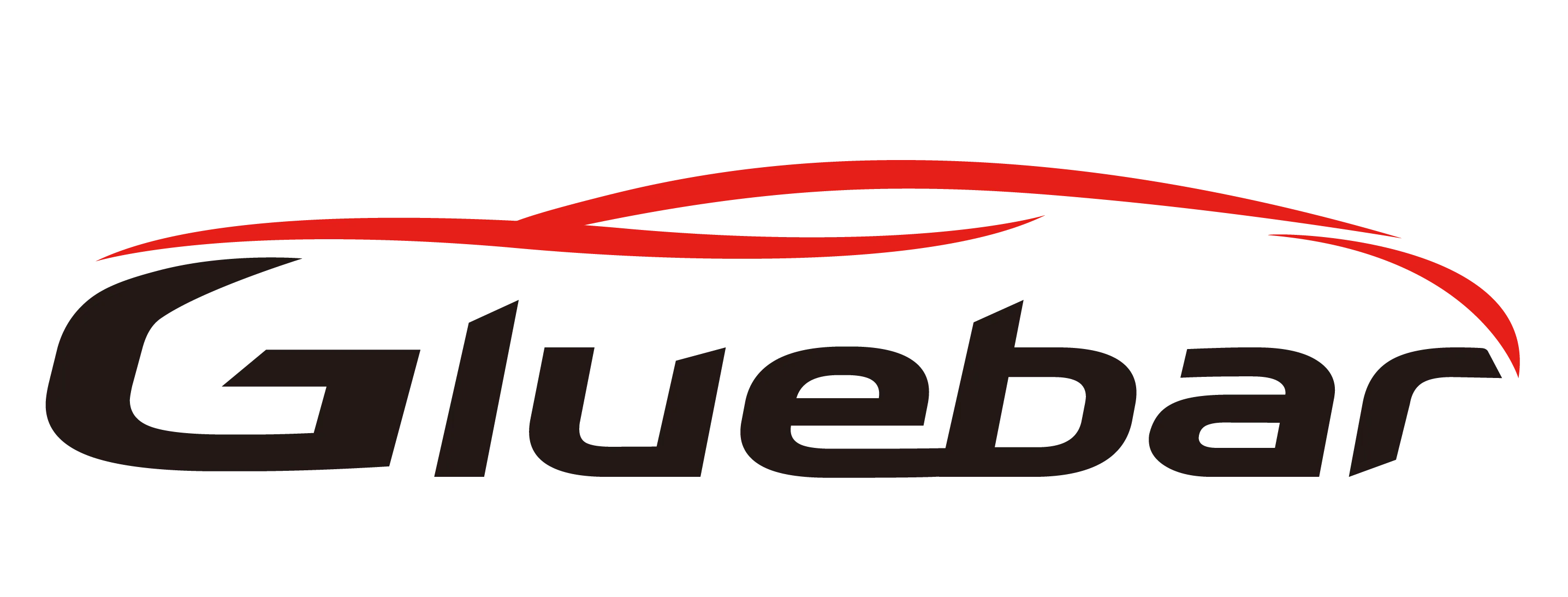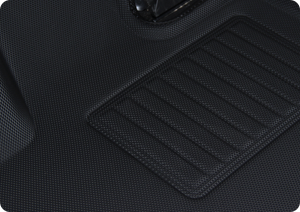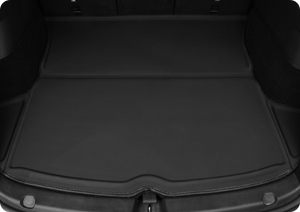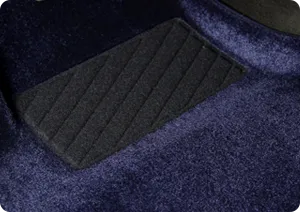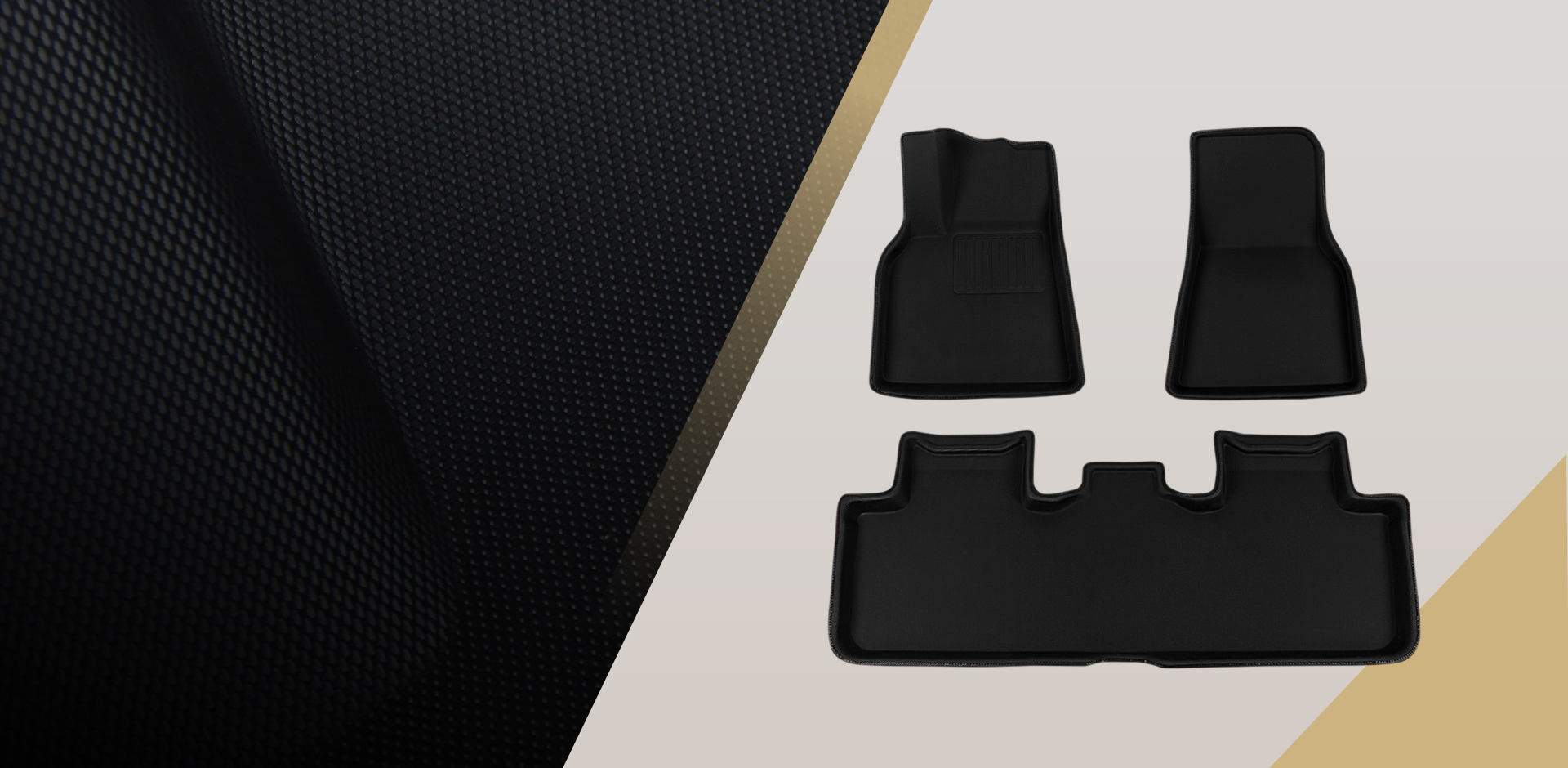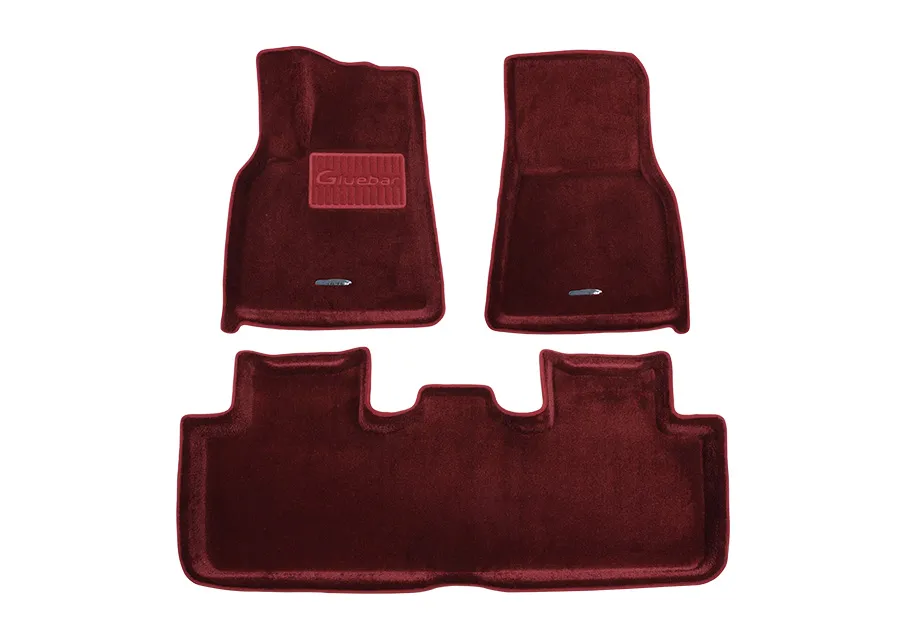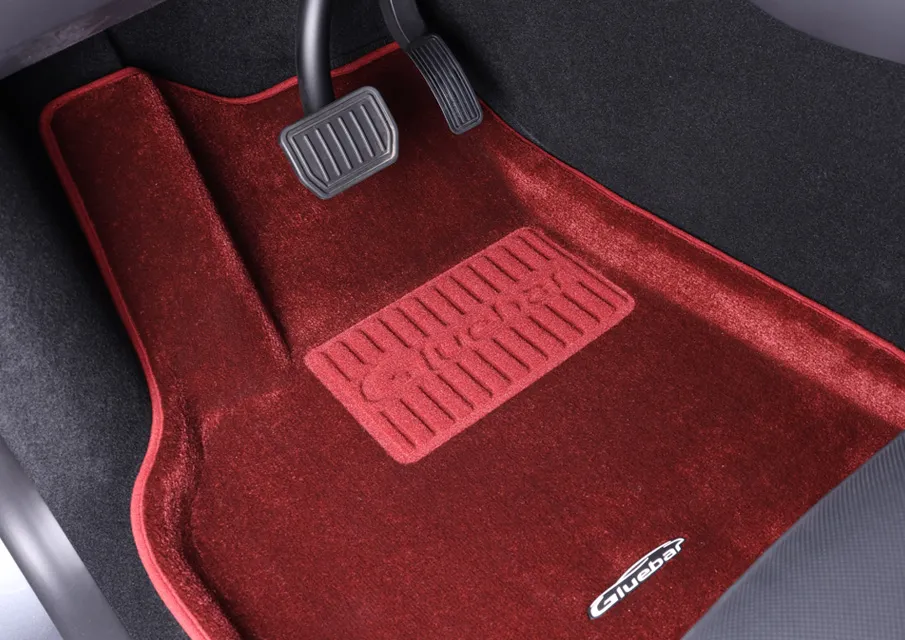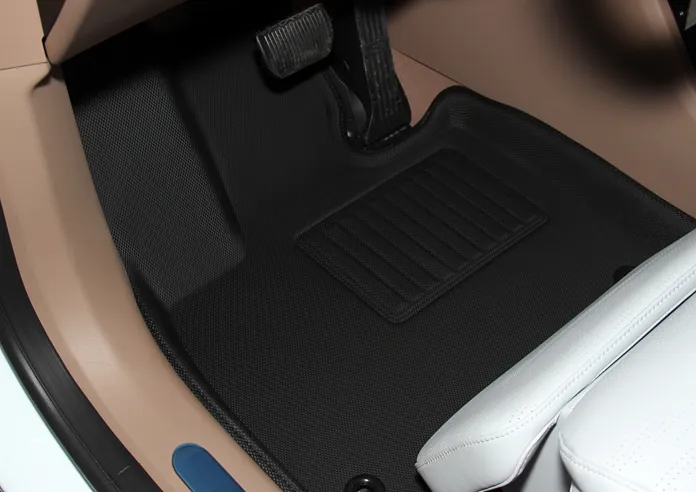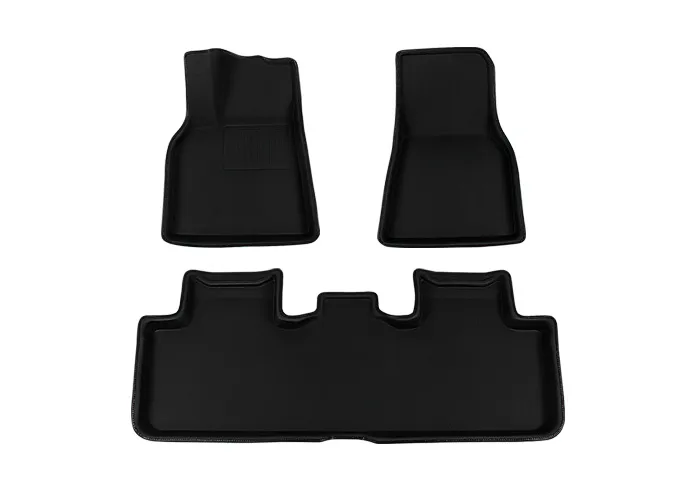Car mats come in many different materials, and the demand is consistently high. Whether it is a sedan, SUV, or pickup truck, car owners replace or upgrade their mats very frequently. For distributors and wholesale buyers, choosing the right material not only impacts the end customer’s driving experience but also directly affects procurement cost, profit margins, and after-sales risks.
As a car mat manufacturer with an annual production capacity of over 1.5 million sets and partnerships with more than 2,000 distributors worldwide, Gluebar leverages years of OEM experience to help you fully understand the advantages and disadvantages of different materials and determine which type best suits the global market.
1. Common Car Mat Materials in the Global Market
1.1 Rubber
Advantages: Low cost, waterproof, slip-resistant, durable.
Disadvantages: Strong odor, lack of design appeal, difficult to meet environmental certification.
Target Markets: Price-sensitive regions such as Latin America and Africa.
1.2 PVC
Advantages: Low production cost, mature technology, fast mass production.
Disadvantages: Poor environmental performance, prone to aging and cracking, rigid texture.
Target Markets: Low-end or temporary-use segments.
1.3 Leather
Advantages: Luxurious appearance, strong visual impact, higher profit margins.
Disadvantages: Poor slip- and water-resistance, difficult to pass compliance in North America and Europe.
Target Markets: Certain Asian markets (such as local distribution in China).
1.4 Carpet
Advantages: Comfortable, excellent noise absorption, premium look and feel.
Disadvantages: Easily stained, difficult to clean, prone to mold in wet weather.
Target Markets: Japan and certain premium European OEM brands.
1.5 TPE
Advantages: Eco-friendly, recyclable, low odor, compliant with European and U.S. environmental regulations.
Resistant to high and low temperatures, suitable for all-weather use.
Certified by ISO9001, IATF16949, etc.
Can be customized with laser scanning and 3D modeling for precise fit.
Disadvantages: Higher cost compared to rubber and PVC.
Target Markets: North America, Europe, Japan, Korea, Australia—mainstream global trend.
2. Why Have TPE Car Mats Become the First Choice for Distributors?
Ultimately, it comes down to consumer demand. More and more car owners now prefer TPE car mats, which has led distributors to follow the same trend. Over the past five years, the global market has shifted from PVC and leather mats toward TPE solutions.
Three main reasons explain this transition:
Environmental compliance: Strict certification requirements in Europe and North America are phasing out high-pollution materials.
Consumer experience: Drivers are more willing to pay for products that are comfortable, safe, and odor-free.
Profit margins: TPE mats command higher prices, allowing distributors to increase margins by 20–30%.
At Gluebar, TPE mats are manufactured using a one-piece hot pressing process combined with 3D scanning and custom tooling to ensure precise fit for each vehicle. This not only reduces return risks but also helps distributors build brand recognition in mid- to high-end markets.
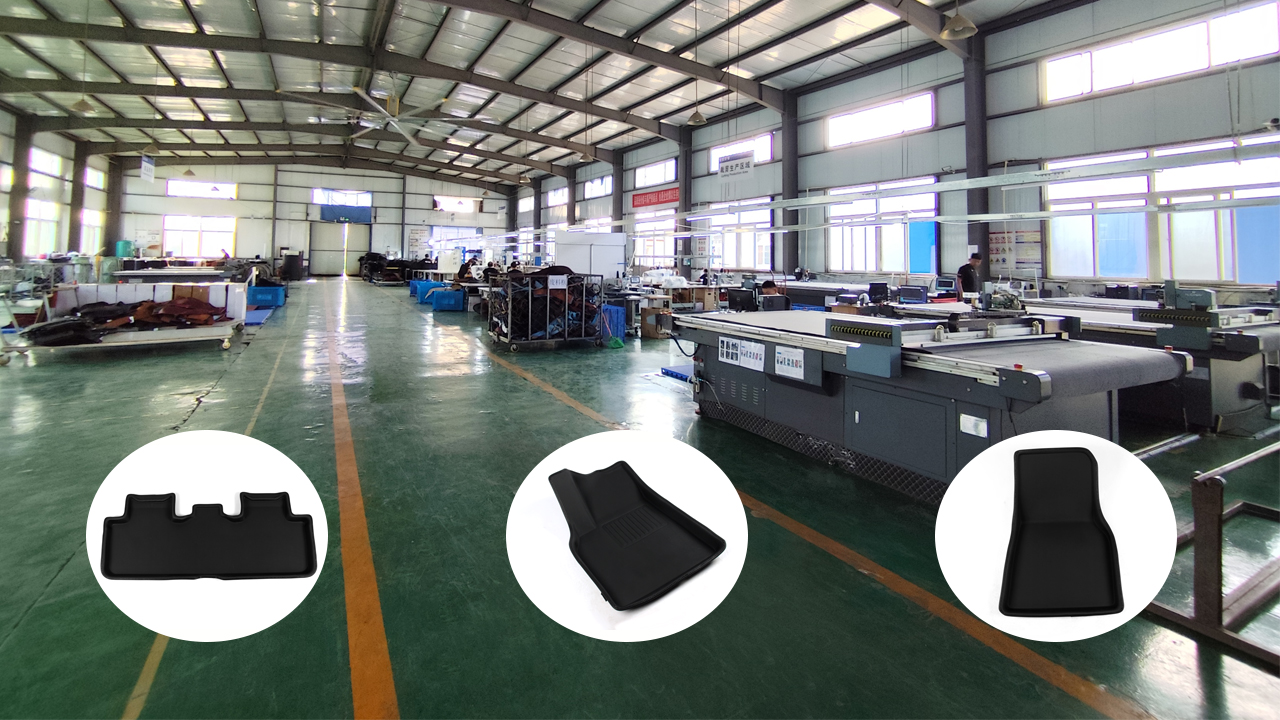
3. Exploring the Eco-Friendliness and Durability of TPE Car Mats
TPE (Thermoplastic Elastomer) has increasingly become the preferred choice for automakers and aftermarket distributors around the world, with particularly strong adoption in Europe and North America.
This widespread popularity is largely due to several significant advantages:
Environmental compliance: TPE mats are low in odor, recyclable, and certified under ISO9001 and IATF16949 standards, which makes them well-suited for entering regulated international markets.
Excellent weather resistance: They can withstand both extreme cold and high heat without deforming, making them ideal for the harsh winters and humid summers often found in North America and Europe.
High customization potential: Through laser scanning and 3D modeling, TPE mats can be engineered to fit each vehicle with precision, while also supporting OEM and ODM requirements.
Reliable mass production: The material is highly consistent in large-scale manufacturing, allowing for shorter lead times and ensuring that distributors can meet peak-season demand without supply disruptions.
Target markets: TPE car mats are especially popular in North America, Europe, and Australia, where environmental standards are strict and all-weather usability is highly valued.
4. Carpet Car Mats: The Ideal Choice for Comfort and Style
Carpet car mats are especially popular in mid- to high-end vehicles and in markets that value the driving experience. They are often seen in luxury cars and premium sedans, especially in Europe and some Asian countries.
Advantages:
Comfortable feel: Soft and smooth underfoot. They reduce noise and vibration, making the cabin more quiet and refined.
Design variety: Available in different fabrics, weaving styles, and colors. This gives more options for luxury models and for buyers who want a custom look.
Higher value: With multilingual packaging and compliance documents, these mats often sell for 20–30% more in the retail market, giving room for better margins.
Target markets: Europe, the Middle East, and parts of Asia. Demand is steady, especially in luxury and premium sedan segments.
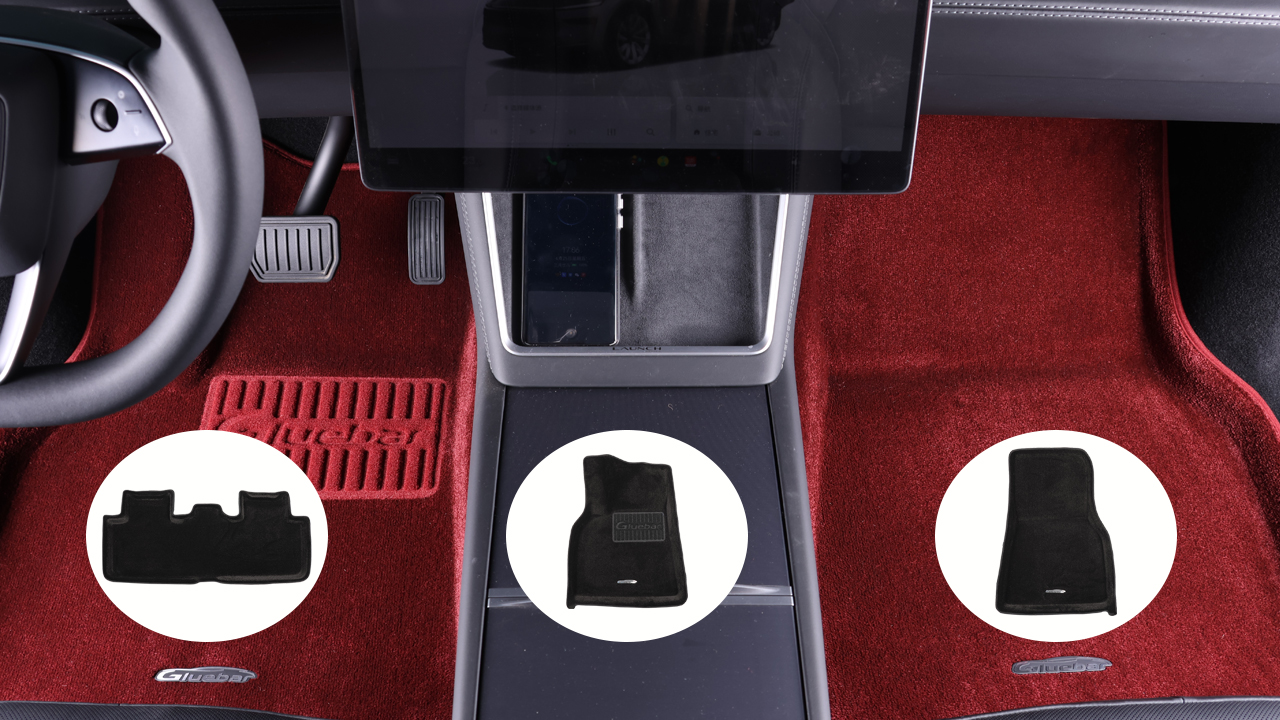
How to Choose: TPE vs. Carpet?
If you want eco-friendly and durable → choose TPE
If you want comfort and a premium feel → choose Carpet
For OEM bulk supply → TPE is the stronger option
For high-end custom and higher pricing → Carpet has more space in the market
Gluebar’s Advantage: Direct OEM Supply
Gluebar is one of China’s leading car mat manufacturers. Each year, the factory produces over 1.5 million sets and works with more than 2,000 distributors worldwide.
TPE mats: Laser scanning + one-piece hot pressing for a precise fit.
Carpet mats: High-density fabric, with multilingual packaging and compliance documents.
OEM/ODM service: Samples in 5–7 days, bulk orders delivered in 15–20 days.
Whether you care about eco rules, bulk supply, or steady profit, Gluebar can meet the need. With large-scale production and experience serving thousands of partners, Gluebar is more than a supplier—it is a trusted partner for car mat distributors around the world.
Conclusion: Choosing the Right Car Mats for Global Markets
TPE and carpet mats dominate the current global market. For distributors and OEM buyers, TPE offers eco compliance and mass production efficiency, while carpet brings premium comfort and higher retail margins. With Gluebar’s OEM/ODM supply chain, partners can balance both market needs and profitability.
